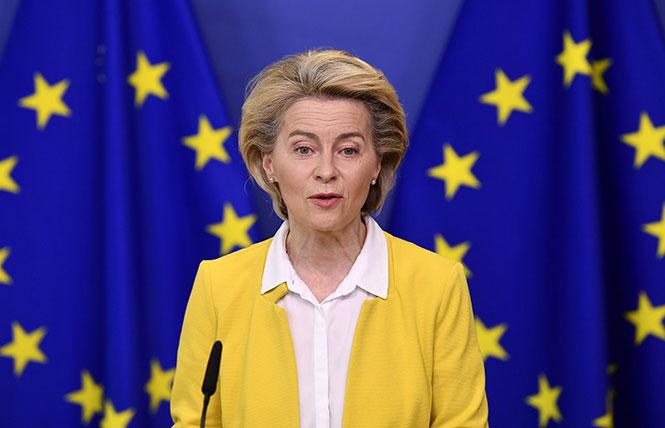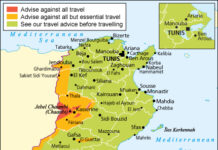A General Affairs Council meeting of European leaders in Luxembourg last week erupted in heated debate, with some members having harsh words for Hungary following the passage of a discriminatory anti-LGBTQ law there.
Hungarian President Janos Ader signed the bill into law June 22, the day before the meeting convened. The Russian-style anti-homosexuality propaganda bill was swiftly drafted and attached to the popular anti-pedophilia legislation less than a week before Hungary’s National Assembly overwhelmingly voted in favor of the law June 15.
It was the Roman Catholic-majority Central European country’s third assault on its queer citizens within a year.
Hungary’s anti-gay law was not on the European leaders’ agenda, but it quickly became the top topic at the two-day summit. In a June 15 news release, the International Lesbian, Gay, Bisexual, Trans and Intersex Association called upon the European Union to utilize all its legal and political instruments to hold Hungary accountable to respect E.U., international, and human rights laws and protect LGBTQ rights.
“The European Commission can no longer turn a blind eye to the ongoing legislative attacks launched by Fidesz [party] against the human rights and fundamental freedoms of LGBTI people in Hungary but needs to use all instruments available to hold Hungary accountable for the respect of fundamental rights, including LGBTI rights,” ILGA-Europe Executive Director Evelyne Paradis stated, referring to the executive branch of the European Union.
It appeared European Commission Chief Ursula von der Leyen heard the calls for action. Von der Leyen promised to “use all the powers of the commission to ensure that the rights of all E.U. citizens are guaranteed, whoever you are and wherever you live,” she told reporters at a June 22 news conference in Brussels, Belgium.
“I have instructed my responsible commissioners to write to the Hungarian authorities expressing our legal concerns before the bill enters into force,” she continued.
Von der Leyen said the E.U. would not compromise its principles for human dignity, equality, and the respect for human rights, reported the BBC.
The coalition of 17 E.U. members led by the Benelux countries (Belgium, the Netherlands, and Luxemburg) also vowed to uphold LGBTQ rights and fight against sexual orientation and gender identity discrimination.
The countries’ leaders called the Hungarian law a “flagrant form of discrimination” when they signed onto a joint letter on the first day of the meeting; Hungary was not mentioned by name in the letter. Late last year, the E.U. announced a five-year plan to mainstream LGBTQ rights across all 27 member countries.
Now all eyes are on the European Commission, which oversees the E.U.’s laws and policies and holds the purse strings, and the European Court of Justice, which enforces the E.U.’s laws.
Charles Michel, the president of the European Council, defended the debate as vital to the functioning of the bloc and its democracy, reported the New York Times.
Dutch Prime Minister Mark Rutte was so angry he told Hungarian Prime Minister Viktor Orbán, “If you don’t like it, there is also an alternative: Leave the union,” reported the Washington Post.
Xavier Bettel, Luxembourg’s gay prime minister, who is also the commission’s only LGBTQI member, called Hungary’s new anti-gay law “too much.” During an intensely personal account of his coming out journey before the council, he said, “The most difficult thing for me was to accept myself when I realized that I was in love with a person of my sex,” reported the Times.
During his speech, Bettel emphasized the suicide rate for queer youth, and added that it’s wrong to conflate homosexuality with pedophilia or pornography.
“I didn’t get up one morning after having seen some advertising and just become gay,” said Bettel, whose husband of six years sometimes travels with him to government meetings. “That’s not how life works. It’s in me; I didn’t choose it. And to accept oneself is hard enough, so to be stigmatized too, that’s too much.”
Victor Madrigal-Borloz, the United Nations independent expert on protection against violence and discrimination based on sexual orientation and gender identity, told Reuters that he voiced his concerns about the law to Orbán.
Last year, Hungary banned gender recognition and prohibited transgender individuals from legally changing their identity assigned to them at birth. The country also banned same-sex and single-parent adoptions. Now, Hungary is blocking minors’ access to information about sexual orientation and gender identity.
Thomas Byrne, Ireland’s minister of state for European affairs, said that Hungary was in troubling territory. “It’s a very, very dangerous moment for Hungary, and for the E.U. as well,” he was quoted by Reuters as saying.
Final straw
With Hungarian elections approaching next year, Orbán’s latest anti-LGBTQ assault in a string of legal attacks was the final straw for a majority of E.U. leaders. Orbán has been in power for more than 10 years. His leadership is being challenged by a coalition of parties that have banned together.
In an effort to retain power, Orbán is taking a page out of conservative ally Polish President Andrzej Duda’s playbook, scapegoating Hungary’s LGBTQ community to project an image of conservative family values to voters. Orbán and other Hungarian ministers stood their ground, claiming the law is not anti-LGBTQ and it does not discriminate against queer adults.
The bill protects children and grants their parents control over sex education and sexual orientation and gender identity, the Hungarian leaders said.
Poland was the only country that supported Hungary during the council’s debate. Other Eastern Bloc countries — Estonia, Lithuania, and Latvia — signed onto the joint declaration supporting the E.U.’s position. Slovakia did not take a stand.
Experts and E.U. leaders quickly pointed out that Hungary’s law violates several E.U. and international human rights laws.
“We have to get assurances from Poland and Hungary that they are really going to follow what the E.U. court says in the future,” Sweden’s Hans Dahlgren told Reuters.
E.U. Parliament member Pierre Karleskind called for the commission to suspend several billion euros of structural funds earmarked for Hungary for its anti-LGBTQ laws and Poland’s cities and regions that have declared themselves so-called LGBT-free zones.
He threatened legal action against the E.U. along with many other MEPs from all major political groups if the commission does not take stronger action against Hungary and Poland, he criticized in an op-ed published by Reuters.
It is unclear if the E.U. or the United Kingdom, which also expressed concerns, plan to impose sanctions on Hungary.
Correction
Actor Divya Dutta was incorrectly identified as the transgender woman actor in the June 24 article, “‘Sheer Qorma’s’ Muslim Indian love story breaks barriers.” The error was made due to a misunderstanding during the interview that also appeared in the transcript. Transgender actor Shivali Chettri’s scene was cut from Frameline and other film festivals’ 30-minute version of the 45-minute film, writer and director Faraz Arif Ansari told the Bay Area Reporter. The online version has been corrected and updated.
Got international LGBTQ news tips? Call or send them to Heather Cassell at WhatsApp: 415-517-7239, Skype: heather.cassell, or oitwnews@gmail.com
Help keep the Bay Area Reporter going in these tough times. To support local, independent, LGBTQ journalism, consider becoming a BAR member.








